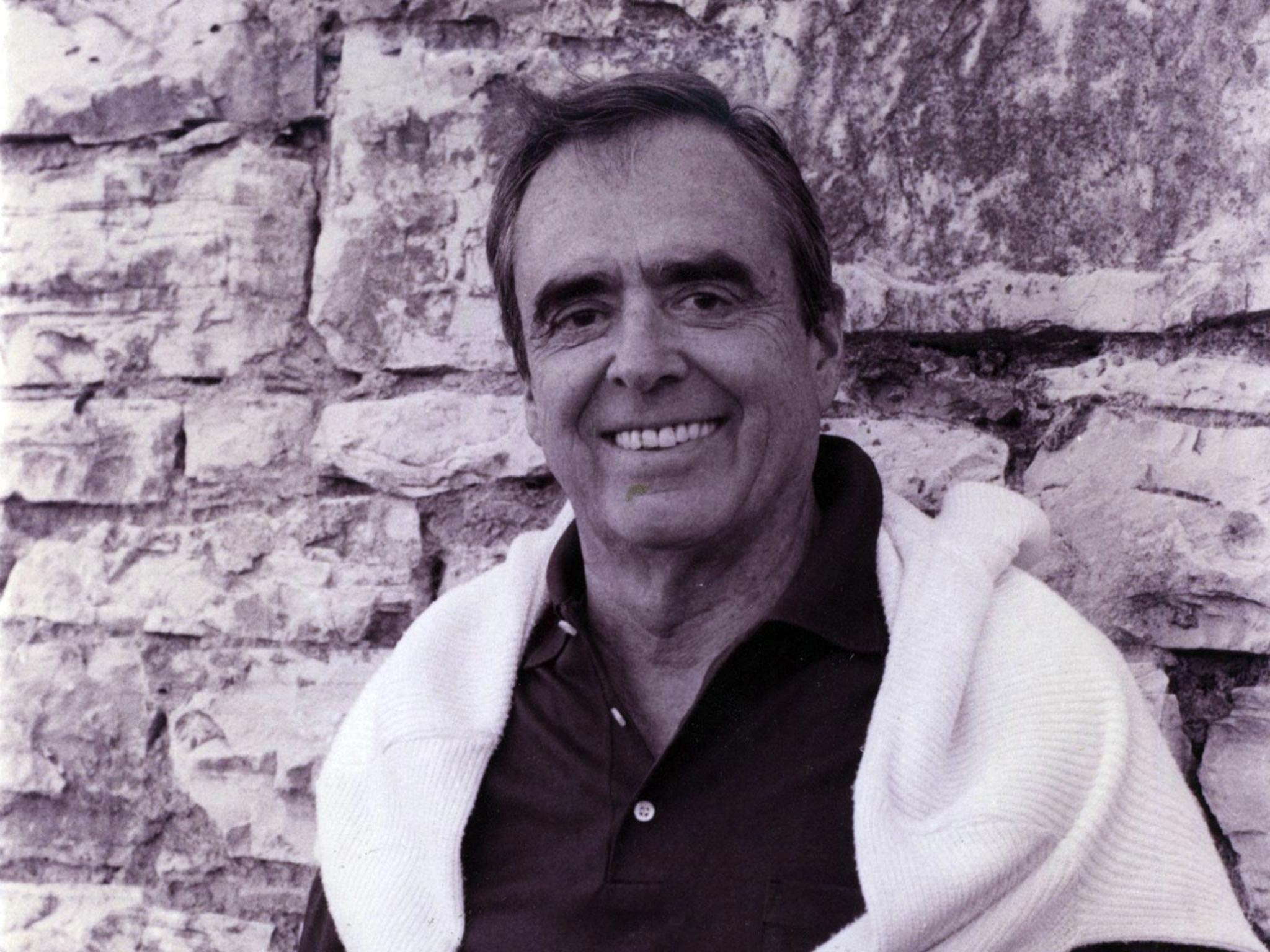Curtis Bill Pepper: Author and journalist who became deeply immersed in Italian life and wrote about film stars, popes and politicians

Curtis Bill Pepper was a supremely interesting and prolific writer; Happiness, his about-to-be-published memoirs and collected pieces, is subtitled "Princess Grace, Mother Theresa and Me." Soon after I met him last summer, he wrote to me saying that publication was being "impeded" because the book also included accounts of "the probable murder of Pope John Paul I" and of "Cardinal Pacelli's sins, lies and ruthless seizure of the papacy" to become Pope Pius XII.
Born in Huntington, West Virginia in 1917, he first came to Europe in 1938, on a long cycling holiday during which he filed reports to the New York World-Telegram, for which he'd worked as a copyboy. He never expected them to appear, let alone on the front page. On his return he wrote for the paper's cultural desk, largely theatre and movie celebrity interviews.
Along with his wife, the celebrated sculptor Beverly Pepper, he was at the centre of an expatriate artistic community in Rome and later Umbria. Bought up in the Midwest, Bill (as he was always called) worked in journalism until the Second World War, when he joined MIS-X, an US military intelligence division dealing with combat deception, escape and evasion, and edited its manual. He lectured on the subject in the US until assigned to Italy, where he joined a field unit on the 5th Army front, setting up "rat lines" behind German lines to return downed pilots and POWs. He was then assigned to MI-9, the escape-and-evasion command in the British 8th Army. Much decorated, following VE Day he stayed in Italy commanding a field unit investigating war crimes, and retired with the rank of major.
At the University of Florence he studied the Italian Renaissance, wrote an unpublished novel, articles for US magazines and film scripts. In 1951 he joined the United Press Rome bureau then went to the CBS network, where he worked with Ed Murrow. In 1956 he married Beverly Stoll, who was originally a painter, and became bureau chief for Newsweek, for the next 11 years writing cover stories on Italian politicians, film stars and directors (this was the golden age of Italian film), the elections and deaths of three popes and Vatican II, in addition to covering political events in Southern Europe and the Middle East.
Though he said he was never a Christian, prelates fascinated Pepper. During the War he'd recruited them along with fishermen, smugglers and partisans, and valued the priests because he could stitch cash into their cassocks. The success of his first book, The Pope's Backyard (1966), led him to leave Newsweek to write his second, An Artist and the Pope (1968), detailing the strange friendship between John XXIII and the Marxist sculptor Giacomo Manzu, who won liturgical commissions from the Vatican as well as the Lenin Peace Prize. The book sold well: extracts appeared in Life magazine and there were seven foreign editions. Christiaan Barnard (1969), the "scripted" autobiography of the South African heart transplant surgeon did even better, as did his 1977 Marco, a novel about a father who drowns a disabled infant in the Tiber.
Pepper's fifth book, Kidnapped! (1978), examined the Italian kidnapping "industry", while the sixth, We The Victors (1984), summed up a five-year study of the experiences of 100 people who survived cancer. His 2012 novel, Leonardo, speculates that the Renaissance genius developed from his traumatic childhood, saved by a loving stepmother who appears in guises from the Virgin Mary to the Mona Lisa.
Having moved to Umbria, Bill and Beverly bought and lovingly restored a torre near Todi. The towered house and property provided an elegantly furnished farmhouse and a huge, wonderful studio for Beverly, in which she could work with her staggeringly large Cor-ten steel pieces, and undertake enormous commissions, which included a sculptured amphitheatre.
Into Bill's nineties they continued to entertain stylishly in the farmhouse. Their daughter is Jorie Graham, the celebrated poet and first woman Boylston Professor at Harvard (successor to Seamus Heaney); their son is the theatre and film director, John Randolph Pepper.
The Peppers were deeply involved in Umbrian affairs. Bill enjoyed the complications of village politics as much as Vatican intrigues, and Beverly's work can be seen in local projects and commissions for the province. Friends say that though his Italian was accented, it was fluent enough for his hilariously scabrous conversation to be relished by his many Italian friends. When he died, aged 96, crowds of local people were there to support Beverly.
Happiness will contain plenty of scandal. Bill's view is that there were two Grace Kellys: one who made "a bare-knuckled commercial arrangement" to "give Rainier an heir to save his 700-year-old principality from reverting to France" but was humiliated and also made to give up her Hollywood career; and another, unloved by her father and by the men with whom she had affairs, "other than Frank Sinatra." There will be a less grim side too, ranging from his tales of Audrey Hepburn, Ben-Gurion, Marcello Mastroianni, Frederico Fellini and Willem de Kooning to the chapter we all long to read: "Maria Callas, Onassis and Jackie."
PAUL LEVY
Curtis G Pepper II, author and journalist: born Huntington, West Virginia 30 August 1917; married 1956 Beverly Stoll (one daughter, one son); died Todi, Italy 4 April 2014.
Join our commenting forum
Join thought-provoking conversations, follow other Independent readers and see their replies
Comments